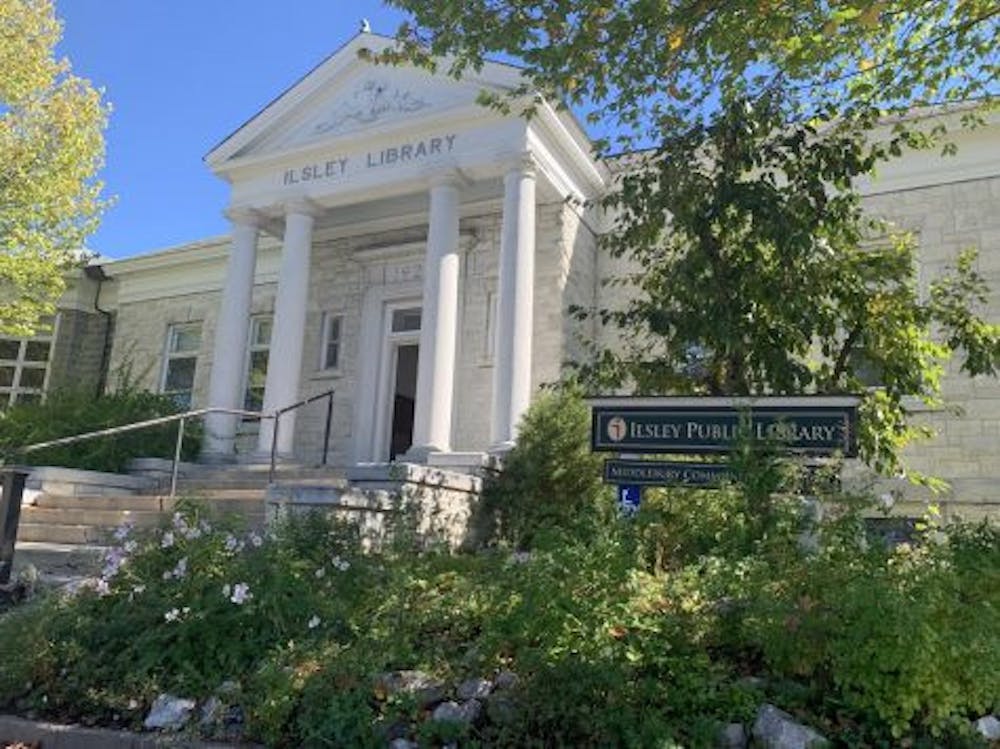Recently, Vermont public libraries have been on the frontlines of the nationwide opioid epidemic, which took the lives of more than 100 Vermonters in 2017 and 2018 according to the Vermont Department of Health. Libraries are open to the public so there is the potential for patrons to suffer health complications while on site, including heroin overdoses.
Middlebury’s Ilsley Public Library is taking steps to counter opioid addiction on a local level. The library has trained employees to administer Naloxone (Narcan), an opioid antagonist drug used to reverse the effects of a heroin overdose. The idea occurred to Ilsley staff about a year and a half ago, as they noticed how overdoses are becoming increasingly frequent in urban libraries across the country. Library director Dana Hart said Ilsley enacted the policy as a reaction to a problem that directly affects Middlebury’s community.
“When [potential overdoses] are happening on your doorstep, you have to figure out how to respond,” Hart said. Ilsley has since worked with the Vermont Department of Libraries for policy and protocol implementation. Library staff were then trained in accordance with the Turning Point Center of Addison County, a nonprofit recovery center that provides help to individuals battling substance abuse.
While Ilsley has yet to administer Narcan to library patrons in Middlebury, staff members are ready at every moment of operational hours. “We are really lucky that we have a wonderful emergency response team in Middlebury, but nothing beats having [Narcan] right here,” Hart said. “If someone is overdosing and minutes are precious, having [Narcan] could be the difference between life and death.”
Stephanie Nadeau, Ilsley librarian of ten years, is one of many staff members that have been trained to administer Narcan. “I think it’s a good idea,” Nadeau said. She acknowledged that while it may be difficult, resuscitating a victim is a responsibility that she would have to carry out.
“This is a community issue,” said Kevin Kareckas, Middlebury’s alcohol and other drug education specialist, of the opioid epidemic. “[The opioid crisis] is not something [just] a segment of the community is focused on.”
According to Kareckas, Middlebury College has also been actively in touch with peer schools to ensure coverage across the greater New England area. Kareckas said that while they do not carry Narcan, officers in the college’s public safety department have received training, and once the college adopts a policy and approves it from senior leadership they are ready to implement the use of of the opiate-reversal drug.
For the greater Middlebury region, Hart believes it is worth researching whether Narcan is good to have in other places within the community. “We made the decision that was right for our institution,” she said. “Every institution has to do what is right for them, but I personally think the more readily accessible Narcan is, the better it can be used to save lives.”
Ilsley Public Library trains staff to administer Narcan

ALVARO SAENZ
Ilsley Public Library began training staff members on how to administer Narcan a year and a half ago.
Ilsley Public Library began training staff members on how to administer Narcan a year and a half ago.
Comments



